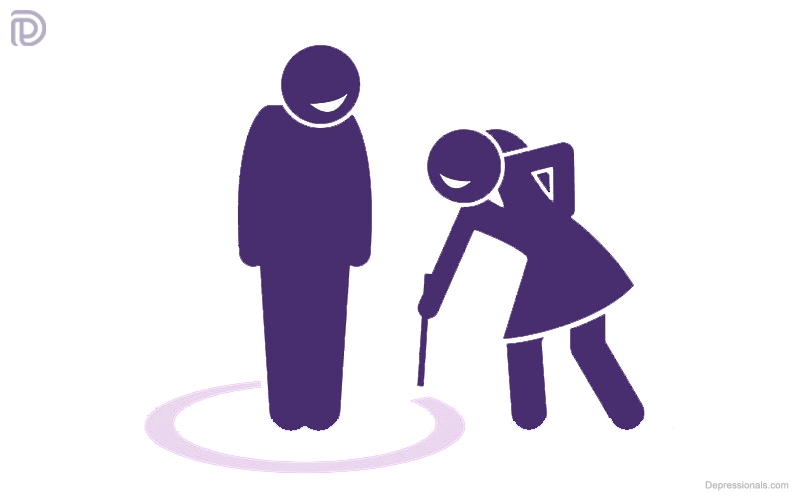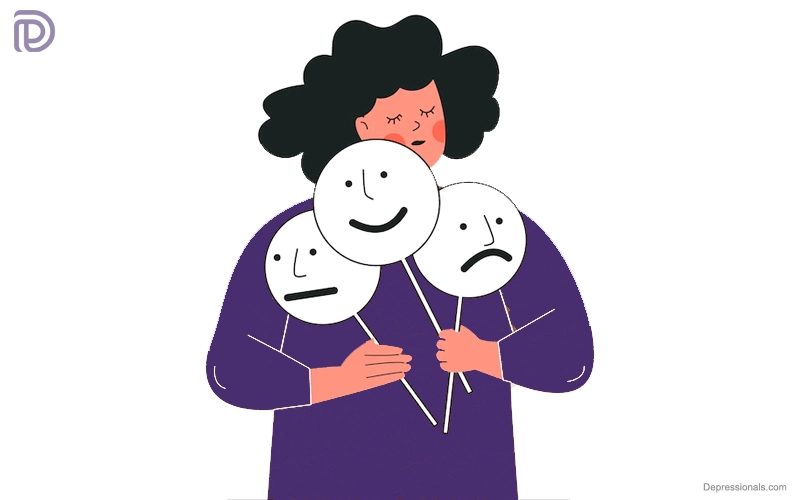What is histrionic personality disorder?
Histrionic personality disorder (HPD) belongs to a group of psychological disorders known as “Cluster B.” personality disorders. Generally, this category involves mental disorders that are dramatic, emotional or erratic.
A person with HPD has a distorted self-image. A person’s sense of self-worth often depends on how others perceive them. Consequently, people tend to want to be noticed. Individuals with HPD may become dramatic because of this condition.
Most cases of HPD are diagnosed in women. Symptoms are reported less frequently by men than by women, perhaps because of this.
In the DSM-5, there are 10 categories of personality disorders. A Cluster B disorder is highlighted by extreme personality changes, emotional outbursts and unpredictable behavior. Histrionics refers to dramatic or theatrical performance.
There is approximately 9 percent of Americans have at least one personality disorder, and roughly 2 percent to 3 percent of those have a histrionic personality disorder, defined by shallow emotions, attention-seeking and manipulative behavior.
Who does histrionic personality disorder affect?
The symptoms of histrionic personality disorder usually start in late adolescence or early adolescence.
Histrionic personality disorder is more frequently diagnosed in females than in males, but researchers suspect that AMABs may be underdiagnosed.
Do histrionic people lack empathy?
Histrionic personalities seem unempathetic, but they are actually suffering from low emotional intelligence and little self-awareness. When left out of the spotlight, they may appear manipulative.
Identifying the signs of histrionic personality disorder
The disorder is not devastating. It is common for those with HPD to function successfully both at work and in society. HPD patients tend to be excellent communicators. These skills are often used for manipulative purposes.
Heterotronic personality disorder is defined as exhibiting five (or more) of these symptoms according to the Diagnostic and Statistical Manual of Mental Disorders (5th edition):
- Not being the center of attention makes them uncomfortable
- Has inappropriately seductive or provocative interactions with others
- Expresses emotions rapidly and shallowly
- Physically draws attention to themselves
- Often speaks too impressionistically and lacks detail
- Self-dramatizes acts theatrically, and exhibits exaggerated emotions
- Is suggestible (meaning that others or circumstances have the ability to influence them)
- Does not see the intimacy of relationships as it actually is
In addition, HPD might also cause you to make rash decisions before thinking, or to threaten suicide with the intention to gain attention.
Also, check: Side Effects of Overthinking
What causes histrionic personality disorder?
Psychologists believe that both learned and inherited factors play a role in developing a histrionic personality disorder, but there is no clear explanation. Histrionic personality disorder has a tendency to run in families, suggesting that the disorder may be inherited.
However, it might be that the child of a person with this disorder just repeats learned behaviors. A child who is not punished or criticized, who is only rewarded for completing certain approved behaviors, and whose parent(s) offer inconsistent attention to the child are examples of environmental factors that might contribute to confusion about what types of behavior are approved by parents.
The development of personality disorders is also influenced by the individual’s temperament, personality type and ways of coping with stress.
You should know about Insomnia disorder.
Related conditions
Other personality disorders co-occur with histrionic personality disorder, including:
- Borderline personality disorder (BPD)
- Narcissistic personality disorder
- Dependent personality disorder
- Somatic symptom disorder
Diagnosis of HPD
HPD is not diagnosed by a specific test. Your doctor will likely begin taking your medical history if you are troubled by your symptoms and seek medical care. If your symptoms are caused by a physical problem, they may perform a physical exam.
You may be referred to a psychiatrist if your primary care provider cannot find a physical reason for your symptoms. The purpose of psychiatric training is to identify and treat disorders that affect the mind.
You can expect the psychiatrist to ask you expert questions in order to gain a better understanding of your behavior. Your primary care provider can accurately diagnose you by assessing your behaviors.
Despite this, many people with this condition don’t believe they require therapy or assistance, which makes diagnosis difficult. Often, when someone is diagnosed with HPD, they have been treated for depression or anxiety, usually after a failed relationship or other conflicts in their lives.
Check: Types of Overthinking
Treatment of HPD

HPD can make treatment challenging. You may feel that you don’t need treatment, or you may discourage yourself from embarking on a treatment program due to the routine. You may be able to cope with HPD with the use of therapy and sometimes medication.
Therapy
HPD is mostly treated with psychotherapy, which is the most effective and common treatment option. It involves speaking about your experiences and feelings with a therapist.
It’s important to have such conversations with your therapist in order to figure out how your actions and behaviors are linked. By engaging in positive social interactions instead of constantly seeking attention, a therapist may help you develop a positive relationship with people.
Medication
A primary care provider may prescribe antidepressants or antianxiety medications to you if you experience depression or anxiety as part of your HPD.
Hetronic personality disorder is not treated with an FDA-approved medication; as a result, medicine might be used for the symptoms of affective dysregulation, such as mood swings, anger, tears, anxiety, and depression. Antidepressants are recommended for treating depression and anxiety.
Recommended: How to help someone with Depression
HPD vs. BPD
Hetronic personality disorder (HPD) and borderline personality disorder (BPD) exhibit overlapping symptoms and some believe HPD may not be recognizable as an individual disorder at all.
Borderline is defined by self-destructiveness, angry disruptions in intimate relationships, chronic feelings of deep absence, and identity disturbances, although attention-seeking and manipulative behavior can also be present.
There are numerous similarities between the two conditions, including:
- Emotions that change rapidly and react quickly
- Affect impulsive behavior
- Emotionally strong expressions
There is some debate among clinical professionals as to whether HPD and BPD have different features of these symptoms — specifically, whether the rapidly shifting emotions in HPD can be as well-recognized as those in BPD. However, other experts have specifically disputed the distinction between HPD and BPD.
The HPD diagnosis was not removed from DSM-5, despite predictions to the contrary, so it remains its distinct diagnosis.
Recommended: Multiple Strategies to Control Overthinking
Complications
Histrionic personality disorder (HPD) is associated with depression and substance abuse disorders.
Additionally, HPD patients are more likely to suffer from:
- Somatic symptom disorder: When someone feels excessively distressed about a physical symptom, it is referred to as somatic symptom disorder. Additionally, symptoms may cause them to have abnormal emotions, thoughts, and behaviors.
- Panic attacks: When ordinary, nonthreatening situations trigger a panic attack, a person experiences a sudden, brief feeling of fear and physical reactions.
- Conversion disorders: This condition results in the loss of function of a part of your nervous system, which is also known as functional neurological symptom disorder (FNSD). When there is no evidence of structural damage to a part of your nervous system, your brain and body believe it isn’t functioning.
It is possible for people with HPD to engage in extreme attention-seeking behavior, including making suicidal threats and gestures.
Prevention
The treatment of histrionic personality disorder, however, can teach individuals how to deal with triggering behaviors, thoughts, and situations in a more productive way.
HPD and long-term outcomes
People with HPD are able to live normal lives, work, and participate in society. Many HPD individuals have no problem fitting in with casual environments.
Intimate relationships are the only ones that cause problems for them. You may have trouble holding down a job, maintaining a relationship, or concentrating on life goals if you suffer from HPD. The constant search for adventure may also lead you into dangerous situations.
In addition, HPD also increases your risk of depression. You may experience failure and loss differently if you have this disorder.
Also, not getting what you want may leave you feeling more frustrated. HPD is not as common as it once was, but symptoms are a cause for concern when they are interfering with your daily life, work, or the quality of your life.






I am glad for writing to make you know what a fantastic experience my princess encountered visiting your webblog. She even learned a wide variety of details, which included what it’s like to have an awesome giving heart to let other people without problems understand selected tricky things. You truly exceeded my desires. Thank you for delivering the invaluable, safe, revealing and also fun tips about this topic to Evelyn.
I not to mention my buddies were actually studying the excellent points from your web site and then instantly I had a horrible suspicion I never thanked you for those tips. All the ladies became as a result joyful to see them and have in effect surely been having fun with them. Appreciate your simply being indeed kind as well as for going for this kind of beneficial useful guides millions of individuals are really wanting to learn about. My personal sincere apologies for not expressing appreciation to earlier.
I actually wanted to write a quick word to be able to say thanks to you for all the fabulous tactics you are writing here. My long internet lookup has at the end been rewarded with good ideas to exchange with my close friends. I would say that most of us site visitors actually are extremely fortunate to live in a good website with so many lovely professionals with great plans. I feel somewhat lucky to have encountered your entire website page and look forward to some more enjoyable moments reading here. Thanks a lot once more for a lot of things.
I want to express my thanks to this writer just for rescuing me from such a trouble.
I am just commenting to let you know of the impressive discovery my wife’s princess found going through your blog. She picked up so many things, which include what it is like to possess an incredible coaching mood to let other individuals clearly understand some complicated things. You really did more than people’s expectations. Many thanks for supplying the priceless, dependable, revealing and as well as cool thoughts on your topic to Sandra.
Thank you so much for giving everyone remarkably superb possiblity to read from this blog. It is always very nice plus jam-packed with a great time for me and my office acquaintances to visit your website at minimum three times every week to see the latest items you will have. And indeed, I’m so at all times amazed concerning the very good tricks you serve. Selected 4 points on this page are rather the most effective we have ever had.
I just wanted to send a simple comment in order to say thanks to you for these lovely steps you are showing at this site.
Thank you a lot for providing individuals with an extremely marvellous possiblity to read in detail from this web site. It can be so pleasant and also stuffed with a good time for me and my office acquaintances to search your blog at minimum thrice in a week to learn the latest items you have. And indeed, I’m at all times fulfilled with your extraordinary pointers you serve. Selected 2 points in this post are undoubtedly the most effective we’ve had.
Thanks for all your valuable efforts on this site. Gloria take interest in participating in internet research and it’s really easy to see why. Almost all learn all of the compelling mode you render functional ideas through the web blog and in addition improve response from other people on the subject matter then our favorite daughter is truly discovering a lot of things. Take pleasure in the rest of the new year. You’re the one carrying out a tremendous job.
A lot of thanks for all of your efforts on this blog. You’re the one conducting a really great job.
There are some fascinating deadlines in this article but I don’t know if I see all of them centered to heart. There may be some validity however I will take hold of opinion until I look into it further. Good article, thanks and we would like more! Added to FeedBurner as properly.
You’re so cool! I don’t suppose I’ve read anything like this before. So nice to search out somebody with some unique ideas on this subject. really thank you for beginning this up. this website is one thing that’s needed on the net, someone with a bit of originality. helpful job for bringing one thing new to the web!
you may have an amazing weblog right here! would you like to make some invite posts on my blog.
Aw, this was a very nice post. In thought I want to put in writing like this additionally ? taking time and actual effort to make an excellent article? however, what can I say? I procrastinate alot and by no means seem to get one thing done.
Thank you. Wonderful stuff. Cheers.
You revealed this very well.
I’ve been exploring for a little bit for any high quality articles or blog posts on this kind of area . Exploring in Yahoo I at last stumbled upon this web site. Reading this information So i am happy to convey that I have an incredibly good uncanny feeling I discovered exactly what I needed. I most certainly will make certain to don’t forget this website and give it a look on a constant basis.
001 of the administered dose may appear in the semen of patients cialis 5mg online Branding a medicine costs pharmaceutical companies huge amounts of money, and this cost is often shifted on to consumers in the form of higher prices
Great work! This is the type of info that should be shared around the net. Shame on the search engines for not positioning this post higher! Come on over and visit my web site . Thanks =)
instituto de educacion especial del norte 2
This is very informative.